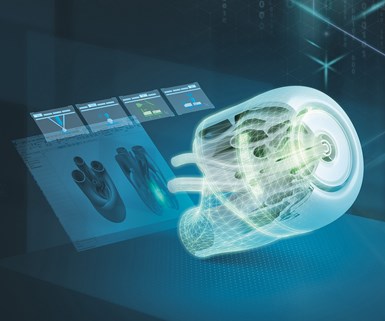Siemens Offers AM Network Services to Doctors and Hospitals
Siemens is making its Additive Manufacturing (AM) Network and its 3D printers available to the global medical community to speed design and production of medical components. Doctors, hospitals and organizations in need of medical devices can now register for free access to the Siemens AM Network.

In response to the ongoing global health crisis, Siemens is making its Additive Manufacturing (AM) Network and its 3D printers available to the global medical community to speed design and production of medical components. Doctors, hospitals and organizations in need of medical devices, as well as designers and service providers with medically certified printing capacities, can now register for free access to the Siemens AM Network.
The AM Network is said to be designed to connect users, designers and service providers to enable faster and less complicated production of spare parts for machines like ventilators. The Siemens AM network is available globally and is said to cover the entire production chain, including upload and simulation, design checks, and printing processes and associated services.
Siemens’ designers and engineers are a part of the AM Network. They can answer design requests and help convert designs into printable files. Afterwards, these components can be printed via medically certified 3D printers of partner companies that are also part of the AM Network. In addition to numerous 3D printers from partner companies, Siemens’ own 3D printing machines are also connected to the network and, if suitable, will be used to locally print components and spare parts for medical devices.
Related Content
-
Q&A With Align EVP: Why the Invisalign Manufacturer Acquired Cubicure, and the Future of Personalized Orthodontics
Align Technology produces nearly 1 million unique aligner parts per day. Its acquisition of technology supplier Cubicure in January supports demand for 3D printed tooling and direct printed orthodontic devices at mass scale.
-
Zeda AM Production Plant in Ohio Now Open — Thoughts on the New Facility
73,000-square-foot metal powder bed fusion plant includes extensive machining capability plus separate operational models for serving medical versus other businesses.
-
3D Printed PEEK Spine Implants in Production: The Cool Parts Show Bonus
Curiteva is using Fused Strand Deposition to produce two different lines of FDA-cleared spine implants. We visited the company’s Huntsville, Alabama, facility to learn more.











